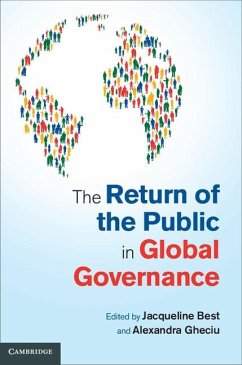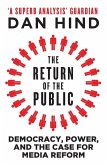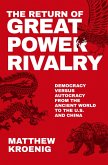Many international relations scholars argue that private authority and private actors are playing increasingly prominent roles in global governance. This book focuses on the other side of the equation: the transformation of the public dimension of governance in the era of globalization. It analyses that transformation, advancing two major claims: first, that the public is beginning to play a more significant role in global governance, and, second, that it takes a rather different form than has traditionally been understood in international relations theory. The authors suggest that unless we transcend conventional wisdom about the public as a distinct sphere, separate from the private domain, we cannot understand the dynamics and consequences of its apparent return. Using examples drawn from international political economy, international security and environmental governance, they argue that 'the public' should be conceptualized as a collection of culturally-specific social practices.
Dieser Download kann aus rechtlichen Gründen nur mit Rechnungsadresse in A, B, BG, CY, CZ, D, DK, EW, E, FIN, F, GR, HR, H, IRL, I, LT, L, LR, M, NL, PL, P, R, S, SLO, SK ausgeliefert werden.









